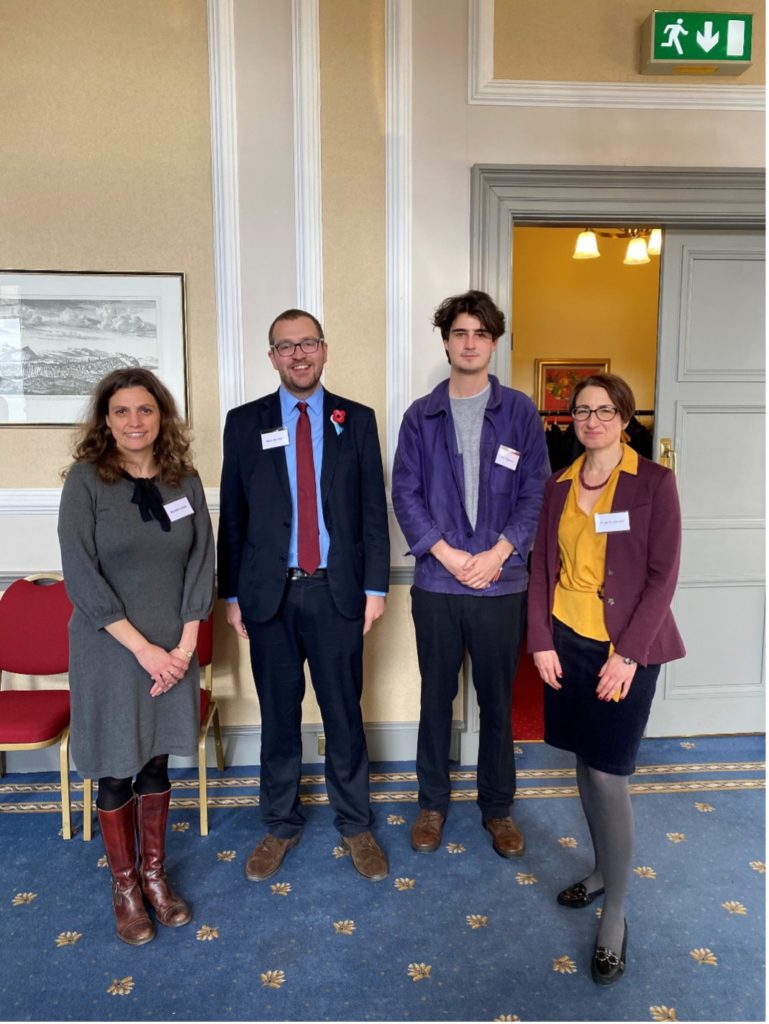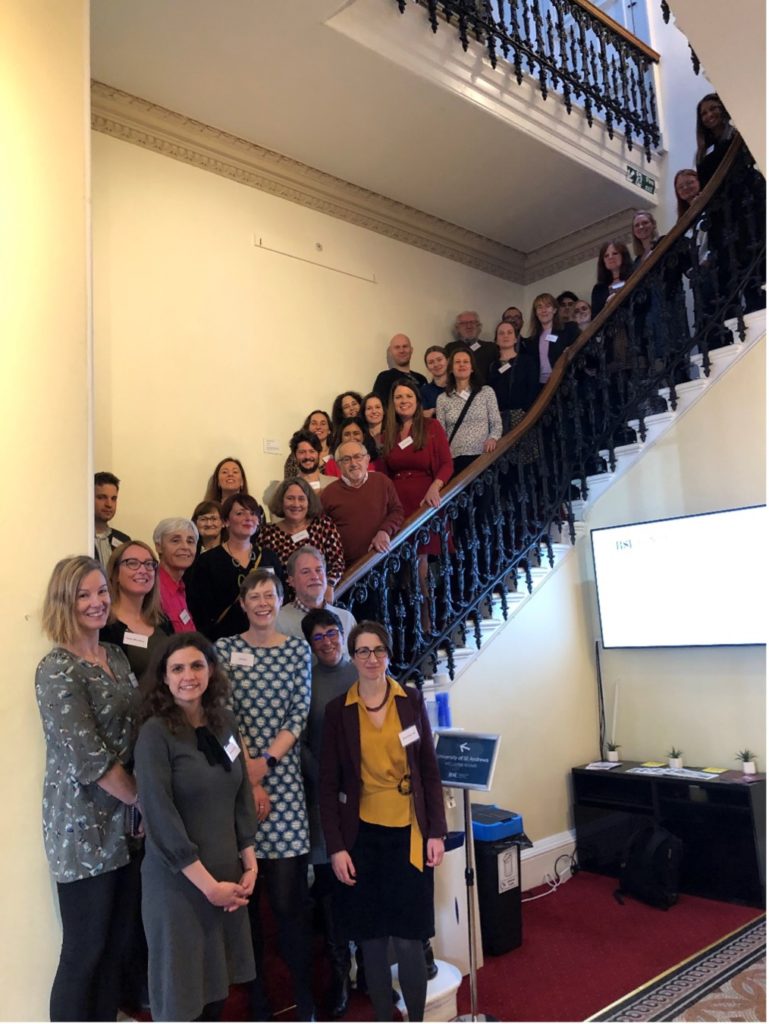Two-Day Event Marks Launch of the Specific Learning Difficulties Network
The Specific Learning Difficulties Network (SLDN) was officially launched this month during a two-day event at The Royal Society of Edinburgh.
The SLDN was established by Dr Silvia Paracchini (University of St Andrews) and Dr Michelle Luciano (University of Edinburgh) with the aim of better coordinating research efforts in the field of specific learning difficulties while involving the key stakeholders. The term Specific Learning Difficulties refers to impairments in acquiring skills in reading (referred to as Dyslexia), mathematics (referred to as Dyscalculia), and writing (referred to as Dysgraphia). These conditions are common and observed in up to 10% of children. They tend to co-occur with each other as well as with other neurodevelopmental conditions including Developmental Language Disorder (DLD), Attention Deficit Hyperactivity Disorder (ADHD) and Developmental Coordination Disorder (DCD). The resultant diversity in how these overlapping impairments manifest means that it can be challenging to assign diagnoses and implement effective intervention strategies.

Participants of the event included scientists from multiple fields of expertise, policy-makers, and stakeholders from across the charity, education, and clinical practice sectors. The event featured a series of short talks followed by Q&A sessions on topics spanning human genetics, cognitive neuroscience, brain imaging, and education research. These talks paved the scene for thematic discussions aimed at identifying the most pressing research gaps and targeted strategies to address them. For example, the varied manifestations of learning difficulties is mirrored by diverse terminology, diagnostic, and assessment criteria, which make it difficult to gather the large datasets needed to evaluate intervention plans and understand long-term outcomes. Such differences became apparent when comparing the policies and strategies of the four nations of the UK. What in England is referred to as SEN (Special Education Needs) is called ASN (Additional Support Needs) in Scotland. Beyond nomenclature, consensus is needed for diagnostic and assessment criteria and for evaluating intervention strategies.
One immediate outcome of the event was the opportunity for representatives of the relevant Westminster and Holyrood party groups to talk to each other. Sharon Hodgson MP, chair of the All-Party Parliamentary Group for Dyslexia and other SpLDs, said, “I always welcome co-operation between the academic community and the political sphere. That’s why I was so glad that a member of my team could attend this event. I look forward to an even closer relationship with researchers in future.”
Oliver Mundell MSP, Convener of the Cross-Party Group in the Scottish Parliament on Dyslexia, said that “This new network provides an exciting opportunity to bring together practitioners, policy makers and research to improve the life chances of those with specific learning difficulties. It was great to see such passion and expertise combine and explore the latest findings and developments. As someone who has experienced first-hand the challenges many with specific learning difficulties face in education and work, I know just how valuable this kind of resource can be for families and young people across Scotland and the UK. By reshaping and combining our efforts and forging new connections more can be made of existing resources and hopefully it will be possible to secure new funding.”

A key priority identified by the SLDN is the need to increase awareness around these conditions, especially dyscalculia. This is an absolute necessity to facilitate identification and interventions, and to ensure that adequate funding is devoted to research in this field. Public support and high-quality research can then support the implementation of evidence-base policies.
Access to large, high-quality longitudinal data was recognised as a fundamental research priority. Such data could address many important questions, including the impact of learning difficulties on developmental trajectories and outcomes throughout life including mental health. An immediate course of action will be to map and harmonise available datasets to facilitate current research and inform potential future collections.
The group further recognised the vital importance of co-designing research projects with the direct involvement of the key stakeholders.
The event was funded by the RSE and the MRC. The SLDN will organise an event in Spring 2023 to present the outcome of this meeting to the public.